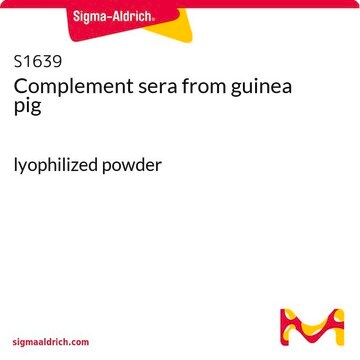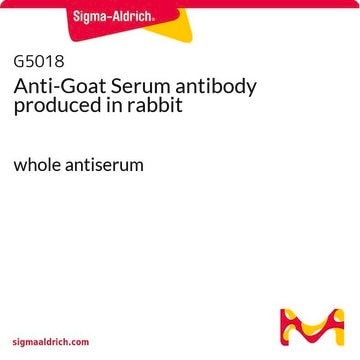B3759
Anti-Bovine Serum antibody produced in rabbit
fractionated antiserum, lyophilized powder
Synonym(s):
Anti-Serum, bovine
About This Item
Recommended Products
biological source
rabbit
Quality Level
conjugate
unconjugated
antibody form
fractionated antiserum
antibody product type
primary antibodies
clone
polyclonal
form
lyophilized powder
species reactivity
bovine
packaging
vial of 2 mL lyophilized antiserum
technique(s)
immunoelectrophoresis: suitable
Looking for similar products? Visit Product Comparison Guide
1 of 4
This Item | B9398 | B8270 | B7276 |
|---|---|---|---|
| biological source rabbit | biological source rabbit | biological source rabbit | biological source rabbit |
| Quality Level 200 | Quality Level 200 | Quality Level 200 | Quality Level 200 |
| conjugate unconjugated | conjugate unconjugated | conjugate unconjugated | conjugate unconjugated |
| Gene Information bovine ... Alb(280717) | Gene Information bovine ... Alb(280717) | Gene Information bovine ... Alb(280717) | Gene Information bovine ... Alb(280717) |
| technique(s) immunoelectrophoresis: suitable | technique(s) direct immunofluorescence: 1:160 using human peripheral blood lymphocytes, immunoelectrophoresis: suitable, immunohistochemistry (formalin-fixed, paraffin-embedded sections): 1:160 | technique(s) immunoelectrophoresis: suitable | technique(s) indirect ELISA: 1:150,000 |
Application
Physical form
Reconstitution
Storage and Stability
Disclaimer
Not finding the right product?
Try our Product Selector Tool.
Storage Class Code
11 - Combustible Solids
WGK
WGK 2
Flash Point(F)
Not applicable
Flash Point(C)
Not applicable
Personal Protective Equipment
Certificates of Analysis (COA)
Search for Certificates of Analysis (COA) by entering the products Lot/Batch Number. Lot and Batch Numbers can be found on a product’s label following the words ‘Lot’ or ‘Batch’.
Need A Sample COA?
This is a sample Certificate of Analysis (COA) and may not represent a recently manufactured lot of this specific product.
Already Own This Product?
Find documentation for the products that you have recently purchased in the Document Library.
Our team of scientists has experience in all areas of research including Life Science, Material Science, Chemical Synthesis, Chromatography, Analytical and many others.
Contact Technical Service








